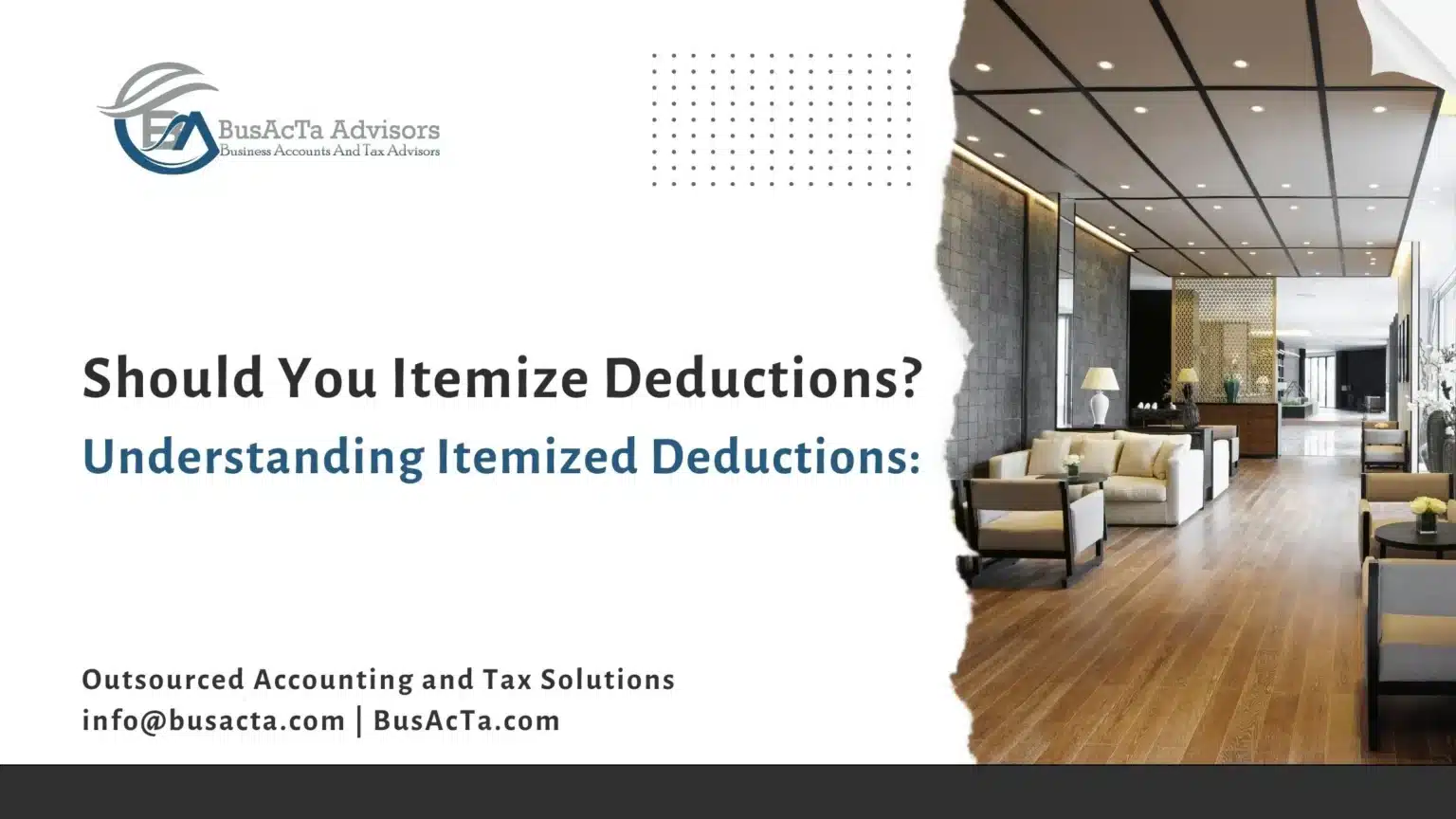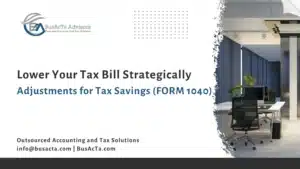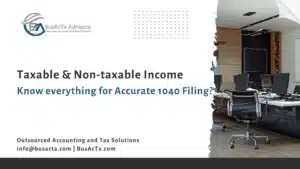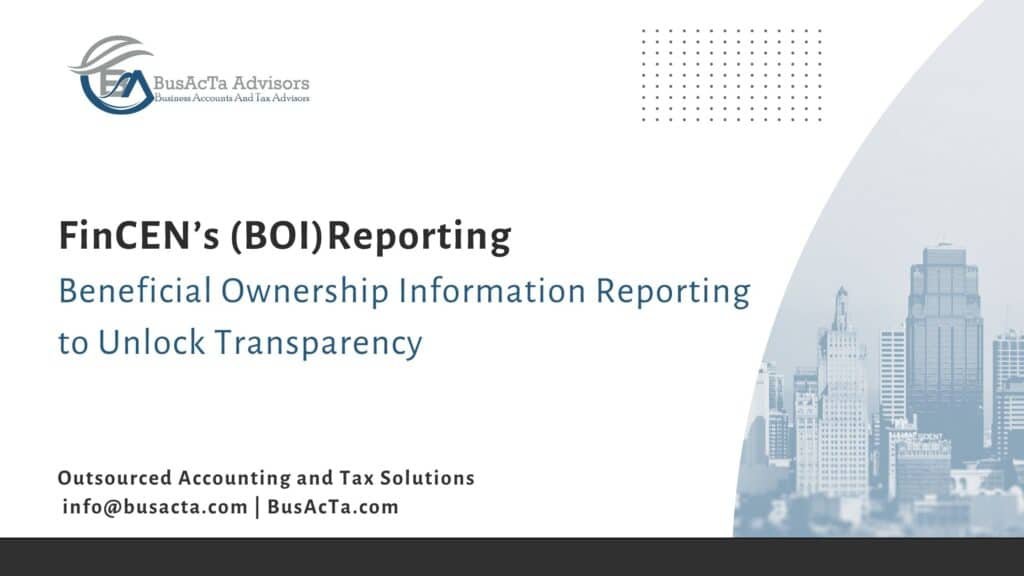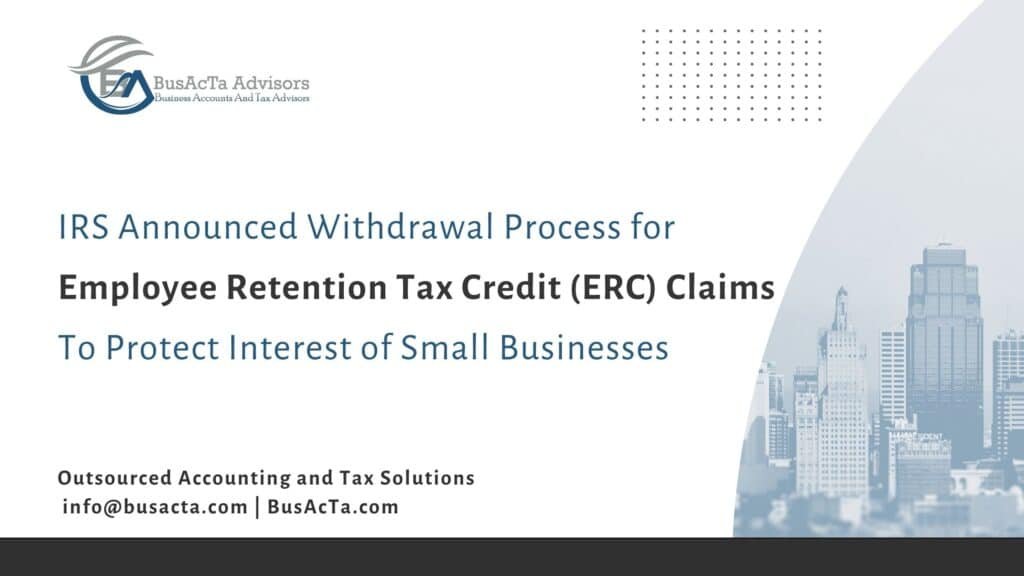Introduction
Taxes are an essential part of our financial lives; they are required by law and are used to pay for public services and resources. Form 1040 is the standard IRS form that people in the United States use to file their Annual Income Tax Returns. This form not only reports income, but it also gives you ways to lower the amount of tax you owe by taking certain deductions.
This brings us to the main point of our conversation: knowing how to claim itemized deductions may help you lower your tax bill more than the standard deduction.
Should I itemize my deductions on my tax return?
Deductions lower your taxable income, which means you owe less tax. There are two types: itemized deductions and standard deductions. The standard deduction is a fixed amount that depends on how you file your taxes. Itemized deductions are more personalized because they count specific expenses.
In a tax year, you have the option to claim either Standard Deduction or Itemized Deduction. You can not claim both. The maximum of both can be the best option for claiming deductions on Form 1040.
What Are Itemized Deductions? Definition, How to Claim?
Itemized deductions are eligible expenses listed on Schedule A (Form 1040) that taxpayers can report to decrease their taxable income. Unlike the standard deduction, which is a one-size-fits-all figure, itemizing allows taxpayers to list and deduct specific expenditures they incurred during the tax year.
If you want to claim itemized deductions, you need to file Schedule A along with Form 1040. Make sure that Schedule A is correct and that you have any supporting papers that could come in handy if the IRS needs to check it.
The beauty of choosing itemized deductions lies in their potential to reduce your tax bill, particularly if those deductions add up to more than the standard deduction amount. The key is knowing what can be deducted and how to make it work in your favor.
Expenses eligible as Itemize Deductions:
Taxpayers often ignore valuable deductions that can significantly reduce their tax bill. Following are some common deductions that you might be missing, such as charitable donations, mortgage interest, casualty losses, and medical expenses. Let’s unlock the potential for tax savings!
1. Medical and Dental Expenses:
These can include unreimbursed medical and dental payments to doctors, dentists, and surgeons, prescription medications, insurance premiums, and certain medical procedures. Additionally, you may be able to deduct expenses related to transportation for medical care.
Medical and dental expenses can be itemized deductions, but only to the extent that they exceed 7.5% of your adjusted gross income (AGI).
For example, if your AGI is $50,000 and you have $6,000 in medical expenses, you can deduct $2,500 ($6,000 minus 7.5% of $50,000) as an itemized deduction. This can help lower your taxable income and potentially increase your tax refund.
2. State and local taxes:
The taxes you pay to state and local governments, including state income tax and property taxes, can be deductible as itemized deductions, with limitations. The Tax Cuts and Jobs Act of 2017 limited state and local taxes that can be deducted to $10,000.
It’s possible to have sales taxes, state income taxes, and city income taxes. However, the IRS only permits the deduction of state and local income taxes or sales taxes. It is therefore beneficial to figure out the total amount of sales taxes and state and local income taxes paid and to choose the highest of both.
For example, if you paid $8,000 in state income tax and $2,000 in property taxes, you could deduct the full $10,000. However, if you paid $12,000 in state income tax and property taxes combined, you could only deduct up to the $10,000 limit set by the Tax Cuts and Jobs Act.
3. Mortgage Interest Deduction:
You can also claim mortgage interest as an itemized deduction on your tax return. You can deduct the interest you paid on a mortgage that you used to buy, build, or improve your primary or secondary home.
This deduction can be claimed on loans up to $750,000 for married couples filing jointly and up to $375,000 for married couples filing separately. Keeping good records of your mortgage interest payments is essential to ensuring you get the right amount of tax credit on your return.
Also, it’s essential to know that you can only deduct mortgage interest for loans that are secured by your home. If you don’t meet these requirements, you might not be able to get this deduction.
For example, if a married couple took out a $700,000 loan to purchase their primary residence, they could deduct the mortgage interest payments on their tax return. However, if they took out an $800,000 loan, they could not deduct the interest on the portion exceeding $750,000. The interest on the portion exceeding $750,000 would not be deductible.
4. Charitable Contributions:
Charitable donations are another common deduction for which you may be eligible. These donations must be made to qualified organizations to be deductible. These donations can include money, property, or even volunteer time.
For example, if a family donates $5,000 to a registered charity, they can deduct that amount from their taxable income. However, if they donate $5,000 to a friend’s personal fundraiser, they would not be eligible to deduct that donation from their tax return.
5. Casualty and Theft Losses:
Casualty and theft losses are another potential deduction available to taxpayers. To deduct casualty and theft losses from their taxable income, taxpayers must demonstrate that the losses resulted from a sudden, unexpected event like a fire, flood, or robbery. The deductible must also exceed 10% of their adjusted gross income. This deduction serves as a way to alleviate financial burdens brought on by unforeseen circumstances beyond the taxpayer’s control.
For example, if a taxpayer’s adjusted gross income is $50,000 and they experienced a $7,000 theft loss, they could deduct $2,000 ($7,000 – $5,000).
Tips for Itemizing Deductions
⮞ Documentation: It is paramount to keep meticulous records of all potential deductions. Receipts, bank statements, and invoices are your best friends come tax season. Additionally, it is essential to consult with a tax professional to ensure that all deductions are appropriately claimed and meet IRS requirements. Proper documentation can help support your claims in the event of an audit.
⮞ Factors to consider: Itemizing isn’t for everyone. Owning a home, having substantial medical expenses, or making significant charitable contributions could tilt the scales in favor of itemizing. Additionally, it’s a good idea to concentrate more on the IRS’s limitations and restrictions, the types of expenses claimed, and the deductibility threshold. It is essential to carefully review each deduction to maximize tax savings while complying with tax laws.
⮞ Resources from the IRS: For more information on itemized deductions and how to maximize tax savings, taxpayers can refer to resources provided by the IRS. IRS Publication 17 and Instructions to Schedule A offer detailed information on what deductions can be claimed and how to comply with tax laws. The IRS website also offers tools and resources to help taxpayers navigate the rules and regulations surrounding deductions.
To access
⮞ Publication 17, visit IRS | Publication 17 (Form 1040)
⮞ Schedule A, visit IRS | Schedule A (Form 1040)
⮞ Schedule A Instructions, visit IRS | Schedule A Instructions (Form 1040)
Conclusion
If you meet the requirements and have kept good records, itemizing your deductions on Form 1040 is a great way to lower your tax bill. It may seem complicated compared to taking the standard deduction, but the money you could save is well worth the trouble. Tax situations differ for everyone, so what works for one person might not work for another. Because of this, talking to a tax expert can give you advice tailored to your unique situation. Be careful of common mistakes, like thinking you can deduct more than you can.
Contact BusAcTa Advisors at info@BusAcTa.com to learn how our Outsourced Tax Preparation Services can help CPAs reduce common mistakes in in-house tax preparation. By outsourcing tax preparation to BusAcTa Advisors, CPAs can save time and money, allowing them to focus on providing expert advice to their clients. Reach out to BusAcTa Advisors for assistance in organizing work, accessing necessary documents, and working efficiently with clients for the best financial outcome.
Answer: Unfortunately, unused deductions cannot reduce your taxable income below zero. However, you might be eligible to carry these deductions forward to future tax years and use them against future income.
Answer:Charitable Contributions to Qualified Charitable Organizations can be claimed as Itemized Deductions. You can claim charitable contributions in form of Cash or Kind.
Answer: Yes, property taxes are deductible on Schedule A of Form 1040, with a limit of $10,000 for tax years 2023 and 2024 (subject to change).
Answer: Yes, deductions lower your taxable income, which can potentially move you into a lower tax bracket. Lower tax brackets mean you owe less tax.
Answer: You can find a list of potential deductions in the Instructions to Schedule A of Form 1040, available on the IRS website: IRS | Schedule A Instructions (Form 1040)
Answer: The value of donated clothing must be its fair market value, not what you originally paid. The IRS has specific guidelines for valuing clothing donations, generally based on its condition. Focus on donating high-quality, gently used clothing to maximize your deduction. For More information, you can Publication 561 (irs.gov)








